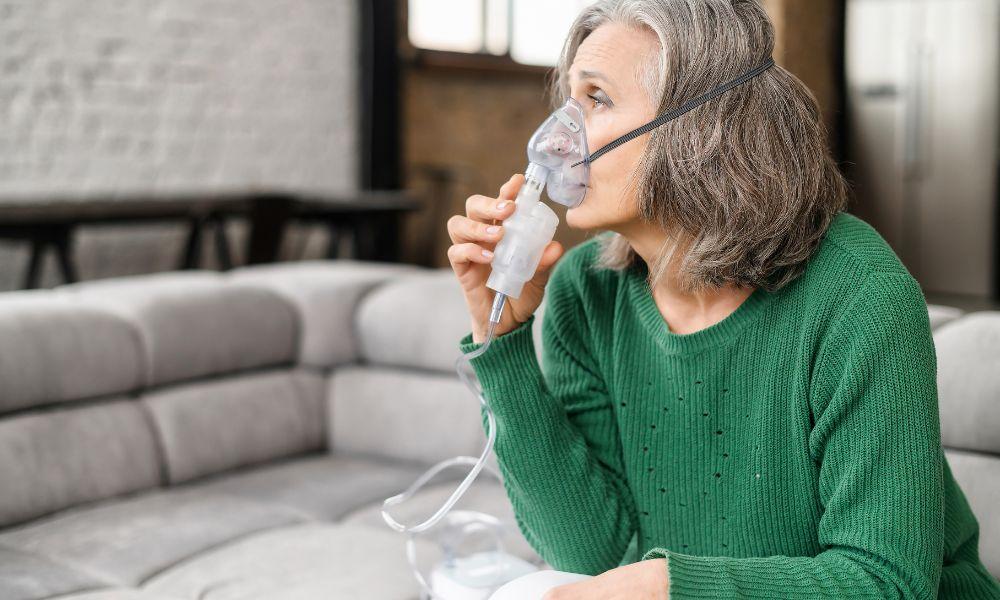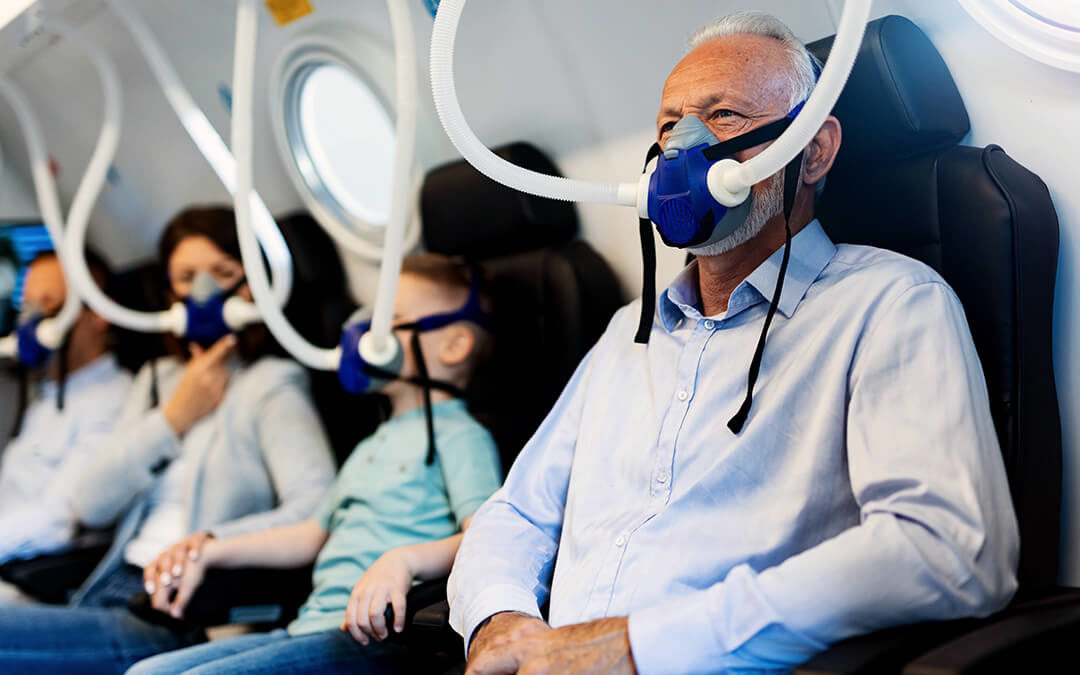Equipping Lives: Exactly how Inogen's Portable Oxygen Tools Make a Difference
Wiki Article
Understanding the Importance of Oxygen Treatment in Medical Products
So, you believe oxygen therapy is simply another expensive medical supply? Oxygen therapy is actually a vital element in the globe of healthcare. From improving patient results to dealing with a wide range of conditions, understanding the significance of oxygen therapy in clinical supplies is essential.The Role of Oxygen Treatment in Medical Care
Oxygen treatment plays an essential role in your healthcare, aiding to boost your body's oxygen levels and promote recovery. When your oxygen degrees are low, it can bring about various health and wellness issues and hinder your body's capability to work appropriately. Oxygen treatment gives you with a focused supply of oxygen to supplement what your body is doing not have.Among the primary advantages of oxygen treatment is that it raises the amount of oxygen in your bloodstream. This aids to boost your body's oxygen saturation degrees, which is important for the correct functioning of your cells and body organs. With enough oxygen degrees, your body has the ability to accomplish important processes much more efficiently, such as healing injuries and battling off infections.
Moreover, oxygen therapy can ease signs and symptoms linked with specific clinical conditions, such as chronic obstructive lung disease (COPD) or respiratory system distress. By supplying your body with additional oxygen, it lowers lack of breath, enhances workout resistance, and boosts total lifestyle.
On top of that, oxygen treatment can be made use of in emergency situation circumstances, such as throughout a cardiac arrest or stroke, to make certain that your body receives the oxygen it needs until additional medical treatment is readily available.
Benefits of Oxygen Therapy in Improving Client End Results
By using oxygen treatment, you can considerably improve your possibilities of achieving favorable end results in your clinical therapy. Oxygen therapy gives various benefits that can enhance your general health and boost the performance of your therapy.Firstly, oxygen treatment assists to raise the oxygen levels in your blood, which is crucial for your body's functioning. When your body obtains an adequate supply of oxygen, it can do its functions a lot more efficiently, bring about better end results in your therapy. inogen. Oxygen treatment can assist improve your breathing, decrease lack of breath, and increase your stamina, enabling you to participate in daily activities easily

In addition, oxygen treatment can assist in injury recovery. Oxygen plays a vital role in the recovery procedure, as it advertises the development of new members vessels and helps fight off infection. By giving your body with an extra supply of oxygen via therapy, you can speed up the recovery process and boost the end results of any kind of surgeries or injuries you may have.
Various Approaches of Providing Oxygen Treatment
Just how can you get oxygen therapy in different techniques? One of the most usual techniques is through the use of an oxygen mask, which covers your nose and mouth and provides a continual flow of oxygen. Additionally, for individuals that call for a higher concentration of oxygen and are not able to tolerate a mask or nasal cannulas, oxygen therapy can be provided with a non-invasive ventilation gadget, such as a BiPAP or CPAP device.Problems That Can Take Advantage Of Oxygen Therapy
To determine if you can gain from oxygen treatment, it is essential to recognize the problems that might require its use. Oxygen treatment is typically recommended for individuals that have reduced blood oxygen levels, also referred to as hypoxemia. This problem can occur as a result of different factors, such as lung illness like chronic obstructive lung disease (COPD), pneumonia, and bronchial asthma. If you have COPD, your lungs may not have the ability to efficiently absorb adequate oxygen, making oxygen treatment required to boost your breathing and ease signs and symptoms like lack of breath. Similarly, pneumonia and asthma can additionally cause oxygen degrees to drop, bring about the demand for oxygen therapy.An additional problem that can benefit from oxygen treatment is rest apnea. This sleep disorder usually triggers disturbances in breathing during sleep, resulting in minimized oxygen degrees in the blood. Supplemental oxygen can aid keep sufficient oxygen saturation degrees and avoid complications connected with rest apnea.
Heart failing is an additional condition that might require oxygen treatment. When the heart is unable to pump blood successfully, it can result in fluid accumulation in the lungs, resulting in lowered oxygen levels. Oxygen therapy can aid boost oxygenation and eliminate signs and symptoms such as difficulty breathing and exhaustion.
Additionally, if you have a serious infection or are recovering from surgical treatment, your body may need added oxygen to help in the healing process. Oxygen therapy can aid in enhancing oxygen levels and promoting quicker recovery.
The Importance of Recognizing Oxygen Treatment in Medical Supplies
To recognize the importance of oxygen therapy in medical products, you need to identify its crucial duty in enhancing respiratory function and boosting client health. Oxygen therapy is a critical treatment technique that is used to offer extra oxygen to people who have difficulty breathing or have reduced levels of oxygen in their blood. By providing a greater focus of oxygen, this treatment helps to boost the body's capability to bring oxygen to crucial organs and tissues, guaranteeing they get the required oxygen supply for correct functioning.Oxygen inogen treatment is specifically essential for individuals with chronic breathing conditions such as persistent obstructive lung disease (COPD), pneumonia, and bronchial asthma, in addition to those recuperating from surgical treatment or experiencing acute respiratory distress. By raising the oxygen levels in the blood, oxygen treatment decreases the work on the heart and lungs, allowing them to function much more efficiently. This can alleviate signs and symptoms such as lack of fatigue, lightheadedness, and breath, while also enhancing overall physical endurance and lifestyle.

Conclusion
In conclusion, recognizing the importance of oxygen therapy in medical materials is essential for improving patient results. By delivering oxygen through various approaches, this treatment can significantly profit people with problems such as respiratory system diseases, cardiac arrest, and even COVID-19. By identifying the value of oxygen therapy, medical care experts can guarantee that individuals receive the necessary oxygen assistance to enhance their overall health and healing.Oxygen therapy plays an important function in your medical treatment, aiding to enhance your body's oxygen degrees and advertise healing.One of the main benefits of oxygen therapy is that it raises the amount of oxygen in your blood stream. Oxygen treatment is an essential therapy technique that is used to give additional oxygen to people that have trouble breathing or have low levels of oxygen in their blood. By delivering a greater focus of oxygen, this therapy aids to improve the body's capacity to lug oxygen to essential organs and cells, guaranteeing they receive the essential oxygen supply for appropriate performance.
By boosting the oxygen levels in the blood, oxygen therapy decreases the workload on the heart and lungs, permitting them to operate more successfully.
Report this wiki page